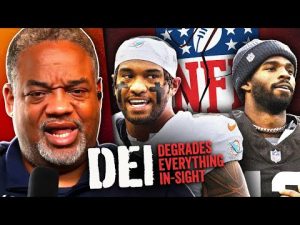In the world of debate and discussion, the importance of showing up in good faith cannot be overstated. Recently, a significant exchange occurred on the Joe Rogan podcast between British intellectual Douglas Murray and American comedian and podcaster Dave Smith. The topic at hand was the complex and heated discussion surrounding the Israeli-Palestinian conflict. However, what followed was less about the facts and more about the credibility of those discussing them.
Douglas Murray, known for his strong opinions in favor of Israel, and Dave Smith, who holds more sympathy for the Palestinian side, were expected to engage in a substantive debate. However, the conversation turned into a confrontation about who holds the right to discuss such heavy topics. Murray questioned Smith’s expertise based on his not having visited the geopolitical locations central to the debate. While this might sound reasonable at first, it brings up a broader question: do you need to have been somewhere to understand or discuss its complexities?
Dave Smith countered this by pointing out how absurd it would be to apply such standards universally. People routinely discuss historical events, like those of Nazi Germany, without having lived through them. Experts in fields like Egyptology study ancient Egypt without the possibility of having experienced it firsthand. Thus, Smith argued, not having visited Israel or Palestine doesn’t disqualify him from having an informed opinion.
The issue highlights a recurring theme in many modern debates: the appeal to authority or expertise. While expertise is valuable and necessary, it doesn’t mean that those without it can’t engage in meaningful discussions. If anything, such debates should be welcomed as a way to share perspectives and grow in understanding. The responsibility rests on both sides to engage sincerely and respectfully, providing evidence and reasoning rather than merely appealing to one’s qualifications or dismissing the other’s lack of them.
In this particular exchange, it seems Dave Smith came prepared to have an open and genuine debate, while Douglas Murray focused more on undermining Smith’s credibility due to his perceived lack of expertise. In reality, meaningful discourse is not about silencing those who supposedly know less but rather about enlightening and clarifying truth and misinformation. If Murray believed his position was stronger, a better strategy would have been to engage thoroughly and respectfully, dismantling Smith’s arguments point by point.
The lesson for audiences and participants alike is clear: robust debate should be encouraged, and diverse voices should be heard. Expertise has its place, but the ability to discuss ideas thoughtfully and respectfully is a skill everyone should appreciate. In the marketplace of ideas, it’s the quality of the arguments that should prevail, not just the resume of the person presenting them. As the discussion around this podcast continues, it serves as a reminder to approach debates with an open mind and a readiness to listen, learn, and engage in good faith.







